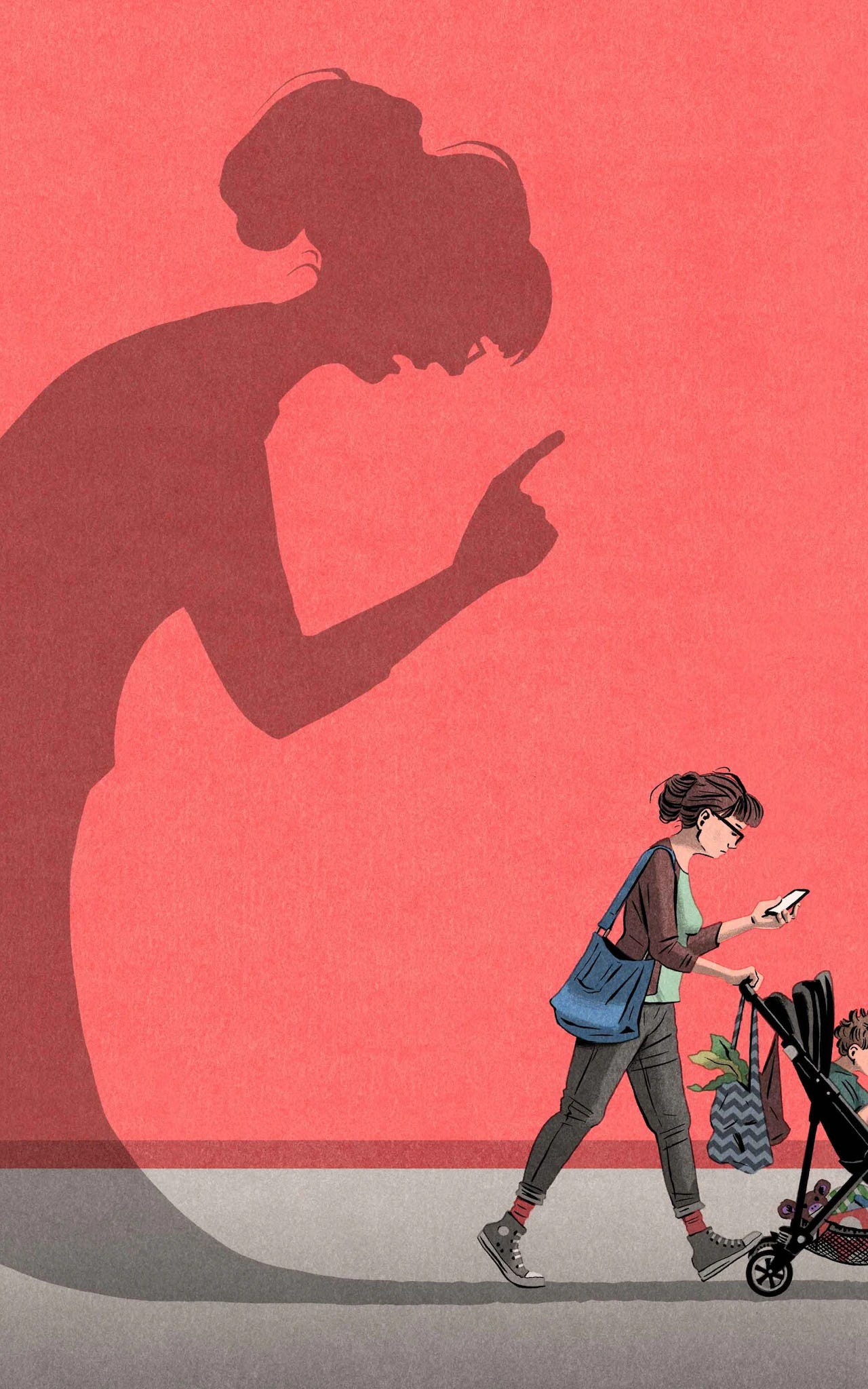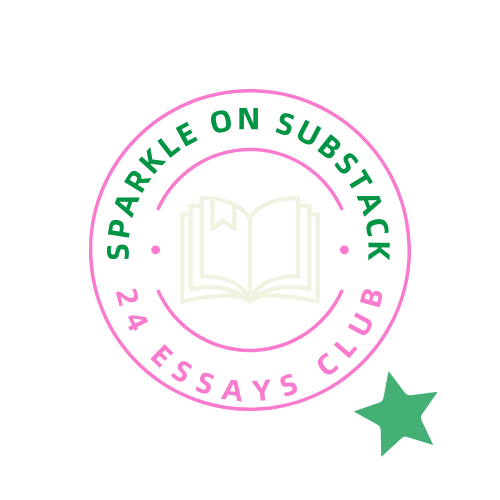Motherhood - Guilty as Charged?
Personal reflections on maternal guilt, evolutionary perspective on guilt, justified and toxic guilt and ways to cope
This is a free newsletter about perinatal mental health, motherhood, and matrescence authored by a BABCP Accredited CBT therapist. Sign up now to stay in the loop!
Guilt never felt so consuming until I became a mother.
I've stumbled, made mistakes, and fibbed to my parents in my youth, but motherhood, now nearly five years into it, has entirely reshaped my understanding of guilt. It's as if pregnancy itself magnified this emotion, turning seemingly insignificant actions into monumental sources of remorse.
During pregnancy, even indulging in a sliver of brie or sipping a glass of diet coke in the final weeks felt laden with guilt. And when my first child arrived, that feeling only intensified, becoming a constant companion that seemed to suffuse every decision, every action or inaction. It was a throbbing, visceral sensation, unlike anything I'd experienced before. It gripped my chest, constricted my breath, and weighed heavily on my shoulders.
In exploring this phenomenon, I reached out to other mothers on Notes, and their responses were enlightening:
Lindsey Kontovich described it as a physical sensation, 'My body feels heavy... like it’s being torn in half in some way.' She experiences it in the moments when considering her own needs versus her children's, oscillating between self-care and the demands of motherhood.
Michelle Torres articulated how guilt manifests in her life, particularly in her interactions with caregivers for her daughter and in ensuring her husband's satisfaction.
Naomi Gottlieb-Miller shared her struggles with guilt, particularly when balancing work commitments with her children's needs and battling the perception of being a 'grumpy mom.'
Sarah, from Becoming a Freelance Illustrator resonated with a quote that struck a chord: 'my mum loves her phone more than me.' It echoed her own feelings of guilt surrounding technology use in motherhood.
And Miriam Cruz expressed the worry of traumatizing her child with displays of frustration and exhaustion, even in fleeting moments.
Evolution of guilt
guilt (n.)
Old English gylt "crime, sin, moral defect, failure of duty," of unknown origin, though some suspect a connection to Old English gieldan "to pay for, debt".
Why do we feel guilty then? To answer that question, let’s journey back in time to understand why, as a species, we developed guilt in the first place.
Guilt, at its core, is a complex emotion entwined with our sense of morality and ethics. It arises when we perceive that we have violated a moral standard or failed to meet our own expectations or societal norms. As social beings, humans have evolved intricate moral frameworks guiding our behaviour and interactions with others. These moral codes act as compasses, aiding us in navigating the complexities of social relationships and maintaining cohesion within communities.
From an evolutionary perspective, guilt likely emerged as a mechanism to promote cooperation and altruism among individuals. In ancestral societies, where survival depended on mutual support and collaboration, adherence to moral principles was crucial for group cohesion and collective well-being. Individuals who exhibited pro-social behaviours and demonstrated remorse for transgressions were more likely to earn the trust and cooperation of their peers, thereby enhancing their chances of survival and reproductive success.
As mentioned, guilt serves as a moral compass, directing us toward behaviours aligned with our values and fostering accountability for our actions. Concerning maternal guilt, the theory posits that it developed as a safeguarding factor. From a social biology and evolutionary standpoint, mothers who displayed heightened vigilance and concern for their children's well-being were more likely to ensure their survival, passing down these traits through generations.
Picture form Telegraph
But how do we end up consumed by guilt when our children are sheltered, safe, and happy, yet may indulge in sugary waffles for breakfast or witness us on our phones? Today, we understand that the experience of guilt isn't solely dictated by external moral standards; it's also shaped by internalised beliefs and personal values. As individuals, we carry within us a unique set of moral principles and standards shaped by our upbringing, culture, and personal experiences. Consequently, what one person may perceive as a moral transgression worthy of guilt, another may not.
Danusia Malina-Derben also shared an intriguing point, further explored in her book “Noise”. She responded to my note:
“I suggest two aspects of maternal guilt that are insidious and toxic: 1) the concept that guilty mothers are loving mothers & 2) that maternal guilt is essential to ensure mothers are invested in our children. The use of a guilt barometer is linked not only to how much we love our children but also to the extent mothers are willing (and able) to deny our own needs. Guilt seems to be required as proof. And then what of those mothers who don’t feel guilt? From my research, I discovered that these mothers stay schtum, feign guilt in groups of mothers and/or feel guilty for not feeling guilty in the ways other mothers talk about.”
This insight points us toward the dangerous notion of guilt becoming synonymous with a “good mother”, which is not only perilous but also detrimental to our well-being.
How to Recognise and Manage Excessive/Toxic Guilt
It's essential to recognise that not all guilt is created equal. While justified guilt can motivate positive change, excessive or unjustified (toxic) guilt can become paralysing, hindering our ability to parent effectively.
Toxic guilt can feel like a heavy fog clouding our thoughts, judgments, and mood. It's as if every decision, every action, becomes weighed down by an invisible burden, leading to a constant sense of doubt and self-blame. This relentless cycle of guilt can take a toll on our well-being, akin to carrying an extra weight in an already heavy backpack, straining not just the body but the mind and soul too. Over time, this burden can erode our self-confidence, fuel anxiety, and contribute to feelings of depression. Therefore, it's crucial for us to recognise when guilt becomes toxic and learn to move away from it.
Checking the Facts and Practising Opposite Action
These two strategies stem from Dialectical Behavioural Therapy (DBT) and help us cope with overwhelming emotions such as guilt. The first step involves checking if the emotion fits the facts and if its intensity is appropriate. Justified guilt arises when we violate our personal values or when our behaviour doesn't align with our morals. In such situations, we mindfully experience the emotion and then take action by repairing the transgression, apologizing, committing to avoid the same mistake in the future, accepting consequences, and letting go once the repair is made.
However, in motherhood, we often encounter toxic or unjustified guilt where the feeling does not align with the facts (no violation of personal values) or its intensity is exaggerated. For example, allowing children to watch an extra 30 minutes of TV to finish reading Substack articles may not align with personal morals, but berating oneself for hours afterward is ineffective and excessive.
In such situations, we can:
Practice Opposite Action: Instead of letting guilt dictate our behaviour, intentionally act in ways that contradict the emotion. For instance, if guilt urges withdrawal, seek connection and engage in activities that bring joy, disrupting the cycle of negative emotions and reclaiming empowerment.
Identify and Reframe Negative Thoughts Associated with Guilt: Challenge negative thoughts that perpetuate self-blame and doubt by replacing them with realistic and balanced perspectives. Instead of dwelling on thoughts like "I'm a terrible mother," focus on evidence that counters this belief, such as (countless) daily acts of care and love you provide to your children and loved ones.
Practice Self-Compassion: Offer ourselves the same kindness and understanding we would extend to a dear friend or our own child. Self-compassion allows us to treat ourselves with gentleness, helping to shift overwhelming feelings of unjustified guilt.
See more on self compassion from Dr. Amber_Writes Self compassion makes us stronger, not softer
Seek Support from Those Who Share Your Values: Share feelings of overwhelming guilt with trusted friends or fellow parents who understand, gaining support and insights into healthier coping strategies.
At the end of our journey together, I would like to ask You:
How does guilt manifest in your own journey of motherhood? Are there instances where guilt feels justified, and others where it may be excessive or unjustified?
Which of the strategies discussed resonates with you the most? How might you incorporate these practices into your daily life to manage feelings of guilt more effectively?
How can we shift the narrative surrounding motherhood and guilt, moving away from the notion that guilt equates to being a 'good mother'?
This is the first post of the Substack challenge Sparkle on Substack 24 Essay Club run by Claire Venus from Sparkle on Substack. Please visit the linked page above to join in if you wish!











And on the topic of guilt/shame. I wrote this last week. It is work in progress, but I felt it was relevant to your essay. It is taken from a work of autofiction, "You are a Mother Now."
Scenes From a Bathroom
I.
“Ça va maman?” my two-year old asks me as she’s trying to squeeze out one of her first cacas in the toilet. She’s almost there: a potty-trained, proud grande fille. Her face is red with effort and I am crouched beside her, encouraging her to push and relax. A close up would reveal that which my two-year-old has already noticed: my blood shot eyes, joyless look and fake smile. My daughter may speak little French, but her emotional awareness frightens me sometimes. There is no fooling this kid. I nod and reach for the toilet paper. To wipe away my tears, discreetly. The shame, the shame, the shame.
My twenty-five-year-old self would be so embarrassed. How did I become this defeated version of my former self? The stronger the wind, the stronger the tree, she’d say. I peel myself off the floor and break into a happy dance. “Bravo!” I jump up and down and clap my hands. My daughter smiles, examines her caca one last time before flushing it down and wishes it “bonne journée”. I wipe her bottom and give her a kiss on her forehead. “Je t’aime ma belle, tu sais?”
This was a lovely and insightful read, thank you! I'll save it to share with my coaching clients who struggle with mom guilt.
I think for me the most helpful thing was the discussion about how healthy guilt is related to values... And for me, remembering that I have multiple values. So for example when I feel guilty for the desire to run a business and invest in my career (instead of playing with my son who I hear giggling from another room), remembering that that twinge of discomfort is natural because I value both my career and my kid... But because I value BOTH it's ok to choose one (like my job) over the other (my kid) on a regular basis.